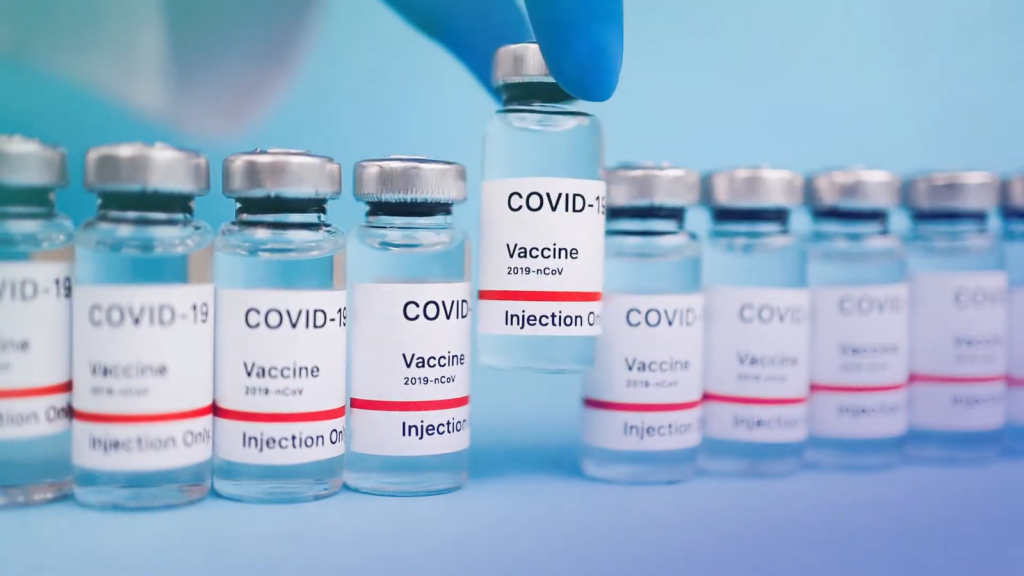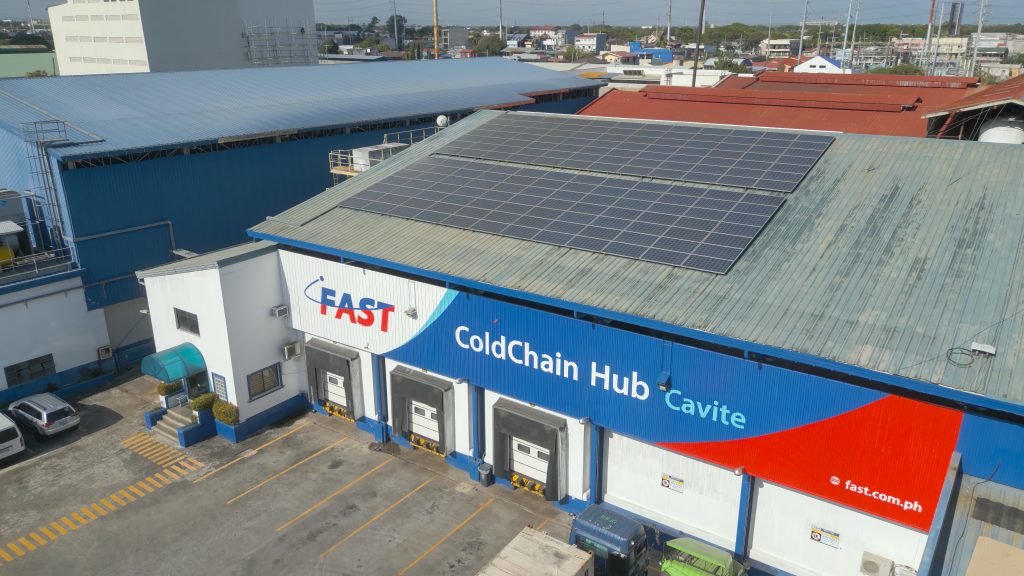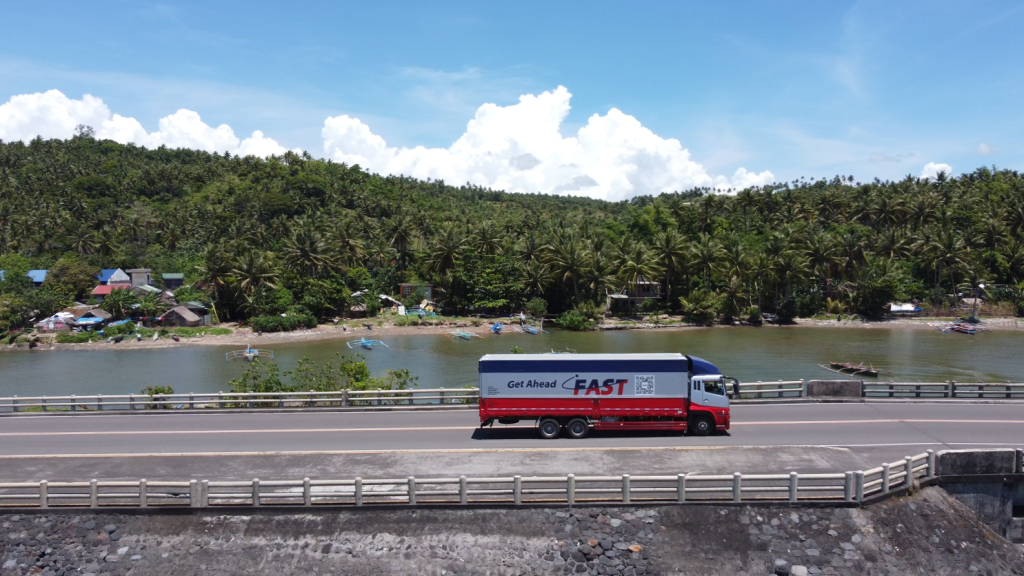
Vaccines save millions of lives every year by protecting individuals from dangerous diseases and preventing outbreaks. Supply chain professionals and logistics managers play a crucial role in observing vaccine storage best practices to help ensure its efficacy and safety.
After all, vaccines must be kept and monitored at specific temperatures to maintain their effectiveness from the moment they are manufactured until they are administered. Without careful handling, the benefits of vaccines could be compromised. Proper vaccine storage and cold chain management prevent potential spoilage and ensure that patients receive the full benefits of immunization.
Understanding the intricacies of vaccine storage is paramount especially for healthcare professionals, pharmacists, and public health organizations. They must be diligent in their work to protect public health and maximize the impact of vaccination programs.
FAST Logistics Group, the leading end-to-end logistics and cold chain management company in the Philippines, outlines vaccine storage best practices, along with practical tips and insights, to help professionals maintain the highest standards of vaccine storage.

Importance of Proper Vaccine Storage
Vaccines are biological products that can lose their potency if not stored under the right conditions. They need to be kept at specific temperatures to maintain their effectiveness. Here’s why protocols for vaccine storage should be followed.
Maintaining Vaccine Efficacy and Safety
The significance of proper vaccine storage extends beyond individual health to public health at large. The degradation of vaccines due to improper storage can lead to reduced immunity in individuals, thereby increasing the risk of outbreaks of preventable diseases. This can lead to the resurgence of illnesses that were previously under control, endangering public health and putting a strain on healthcare systems and resources.
Avoiding Financial Losses
Improper vaccine storage can lead to significant financial losses. Vaccines are expensive, and losing a batch due to improper storage means wasting valuable resources that could have protected countless individuals. Additionally, the cost of managing an outbreak caused by ineffective vaccines can be astronomical, encompassing not just medical expenses but also the economic impact of quarantine measures, lost productivity, and the strain on healthcare systems. Ensuring proper storage is crucial to maintaining the efficacy of vaccines and safeguarding public health.
Building Public Trust in Vaccination Programs
Vaccines are only effective if people trust them. Public trust in vaccines can be fragile, and one of the critical factors that can impact it is how vaccines are stored and handled. By adhering to proper vaccine storage procedures, healthcare professionals and logistics managers can demonstrate their commitment to quality and safety. This will help foster and build public confidence in vaccinations.
Complying with Regulatory Standards
Healthcare professionals, vaccine suppliers, and business organizations are required to comply with stringent regulatory standards for vaccine storage. These standards are put in place to ensure that vaccines remain effective from the point of manufacture to the point of administration. Non-compliance can result in severe penalties and loss of public trust in the pharmaceutical industry.
Do’s – Vaccine Storage Best Practices
Adhering to best practices ensures that vaccines remain potent and effective when administered to patients. Below are some essential do’s to guide you in the proper storage of vaccines.
Use Specialized Refrigerators
Always store vaccines in refrigerators specifically designed for medical use. These specialized refrigerators maintain a temperature range of 2°C to 8°C for most vaccines and -15°C to -25°C for others, which is crucial for preserving the efficacy of vaccines. Additionally, they are equipped with alarms to alert warehouse managers of any fluctuations in temperature, ensuring that any potential issues can be addressed promptly. By using these medical-grade refrigerators, healthcare companies can safeguard the integrity of the vaccine supply chain and ensure optimal results for patient care.
Utilize Dedicated Freezers
Vaccines should be stored in dedicated refrigerators or freezers. It should not be stored with other items such as food to avoid temperature fluctuations and accidental exposure to inappropriate storage conditions, as well as odor, dust, and light that can affect its potency. Having separate freezers for vaccines also helps with proper inventory management.
Monitor Temperatures Regularly
Those involved in vaccine storage should leverage technology to continuously monitor the temperature of vaccines. Modern devices and systems provide real-time data and alerts when temperatures deviate, allowing supply chain professionals to take immediate action or recalibrate to meet the necessary storage requirements. These tools ensure accurate readings and help identify any potential issues with the equipment or storage environment. Healthcare and logistics professionals should ensure that the temperature of storage units stays within the recommended range for each type of vaccine to maintain their efficacy and safety.
Observe Expiry Dates
The expiry dates of pharmaceutical products should always be monitored. For vaccines, healthcare providers should check the expiration dates of vaccines before administering them to patients. Expired vaccines lose their potency and may not provide adequate protection against diseases. Warehouse managers can mitigate this issue by implementing a first-in, first-out system, ensuring older vaccines are used first to prevent wastage. They can also leverage technology and modern systems such as Warehouse Management Systems to streamline inventory tracking and have real-time visibility over expiration dates.
Follow Manufacturer Guidelines
Adhere to the storage guidelines provided by the vaccine manufacturer. Different vaccines may have different storage requirements, such as specific temperature ranges or protection from light, and it is crucial to follow these to the letter. Proper storage ensures the vaccine’s efficacy and safety, preventing any potential degradation or contamination that could compromise its effectiveness.
Don’ts – What to Avoid in Vaccine Storage
On the other hand, certain practices should be avoided when storing vaccines. Here are a few key examples.
Frequent Opening of Refrigerators
Warehouse managers storing vaccines should open the refrigerator door as little as possible. Frequent openings cause temperature changes, which can harm the vaccines. When the door opens, cold air leaves and warm air enters. This makes it harder for the refrigerator to keep a steady temperature. Inconsistent temperatures can reduce the vaccines’ effectiveness and put their safety at risk.
Storing Vaccines in Dormitory-Style Units
Dormitory-style refrigerators are not designed for medical storage and can lead to significant internal temperature fluctuations. These fluctuations can compromise the safety and effectiveness of vaccines, medicines, and other temperature-sensitive goods and medical supplies. It’s crucial to use purpose-built medical refrigerators to ensure proper storage conditions and maintain the integrity of these essential items.
Neglecting Temperature Monitoring Alarms
If a storage unit is equipped with alarms for temperature fluctuations, warehouse managers should never ignore them. These alarms are designed to alert logistics professionals and healthcare providers to potentially harmful changes in the temperature-controlled storage that could affect the integrity of the stored vaccines. Investigate and address the issue immediately to ensure the vaccines remain potent and effective. Regularly check the alarm system to ensure it is functioning correctly, and train all relevant staff on the proper procedures to follow when an alarm is triggered.
Ignoring Transport Operations
Vaccines must be carefully handled and maintained not only in warehouses but also during transportation to preserve their potency. Neglecting transport operations, such as not using temperature-controlled vehicles or ensuring that the vaccines have been packed correctly, can lead frozen vaccines to spoilage and render them ineffective. Pharmaceutical companies should work with logistics providers that have refrigerated vans or trucks for vaccine transportation to ensure their safety and efficacy until they reach their distribution points.

Cold Chain Solutions for Pharmaceutical Companies
The pharmaceutical industry should work with trusted and reliable logistics companies that have proper infrastructure, equipment, and processes in place to ensure the safe and efficient transportation of vaccines and other temperature-sensitive medical products. Logistics providers play a major role in maintaining the integrity of supply chains and vaccine safety through their cold chain solutions. Here are some of them.
Temperature-Controlled Storage
Logistics companies have refrigerators, freezers, and specialized cold rooms that can accommodate pharmaceutical companies, vaccine distributors, and other businesses. They also have backup power sources in case of power outages to ensure continuous refrigeration during transportation or storage. These measures help maintain the recommended temperature range for vaccines and goods that require cold storage.
FAST, the leading provider of end-to-end logistics and cold chain solutions in the Philippines, has temperature-controlled facilities to support the storage and distribution needs of pharmaceutical companies. With FAST ColdChain Hubs in Cavite and North Cebu, the company’s cold chain footprint is currently at 30,000 pallets, preparing them for all your cold storage needs. This extensive capability ensures that vaccines and medicines remain effective from the source all the way to the administration point.
Temperature-Controlled Transportation
Cold chain solutions providers have refrigerated vans, trucks, and trailers equipped with temperature monitoring devices to ensure the safe transportation of vaccines. These vehicles are designed to maintain a consistent temperature range throughout the trip, protecting the integrity of the products being transported.
FAST offers temperature-controlled transportation services for pharmaceutical companies with their specialized fleet of reefer vans and trucks. Their team of experienced drivers also undergoes regular training on proper handling procedures for pharmaceutical products, ensuring that your vaccines reach their destination in optimal condition.
Technology-Enabled Cold Chain Solutions
Cold chain management becomes more efficient for logistics providers that integrate technology into their operations. Their tools empower their cold chain logistics managers and clients such as pharmaceutical companies to monitor every aspect of their supply chain more effectively and efficiently, from cold storage to transport.
At FAST, supply chain processes are automated with the use of the Warehouse Management System and Transport Management System. These suites of software solutions streamline operations, reduce errors, and enhance overall efficiency for cold chain logistics. FAST ColdChain hubs are also equipped with temperature and humidity sensors that can be monitored via mobile or web-based platforms. This means companies can keep an eye on their vaccine inventory and storage conditions even from remote locations.
Watch this video below to learn more.
Power Backups and Contingency Plans
Power outages can happen, especially during natural disasters. A reliable cold chain solutions provider has backup power sources in place to ensure continuous refrigeration of vaccines and other temperature-sensitive products during these emergencies. They should also have contingency plans for other unforeseen events that may affect the integrity of the vaccine supply chain.
FAST has installed generators and solar panels in its ColdChain facilities to provide backup power in case of power interruptions. The company also has contingency plans in place to address unexpected events that could impact their operations, ensuring continuity and reliability for their clients’ cold chain needs.
FAST as the Go-To Provider for Cold Chain Needs
Proper vaccine storage is a critical aspect of the healthcare supply chain that ensures the safety and well-being of the public. By following the do’s and don’ts outlined in this guide, healthcare professionals, pharmacists, manufacturers, and public health organizations can maintain the efficacy of vaccines and contribute to public health efforts.
Partnering with a trusted cold chain logistics provider like FAST can further enhance your vaccine storage capabilities, offering you peace of mind and ensuring that you meet all regulatory standards. With over 50 years of industry leadership, FAST is the leading end-to-end logistics company in the Philippines that offers a wide range of solutions for cold chain needs.
With our state-of-the-art facilities and advanced systems, we ensure that vaccines are stored at the optimal temperature throughout their journey from production to administration. Stay committed to maintaining the highest standards in vaccine storage. Connect with our Solutions Experts or visit http://linktr.ee/fastlogisticsph to learn more about our cold chain capabilities.
Categories
-

FAST Ahead
Includes case studies and testimonials of our partners as well as other featurettes from industry experts
-

FAST Hacks
We simplify logistics terms and provide practical tips and solutions for the DIY in you
-

FAST Highlights
Know more about our history, various brands, achievements, and news updates
-

FAST Moments
Get to know the people of FAST, our employee programs, as well as our various ways of giving back to the community
-

FAST Solutions
Learn more about the various logistics solutions that we cater to and offer our clients, as well as tech innovations, and service facilities



